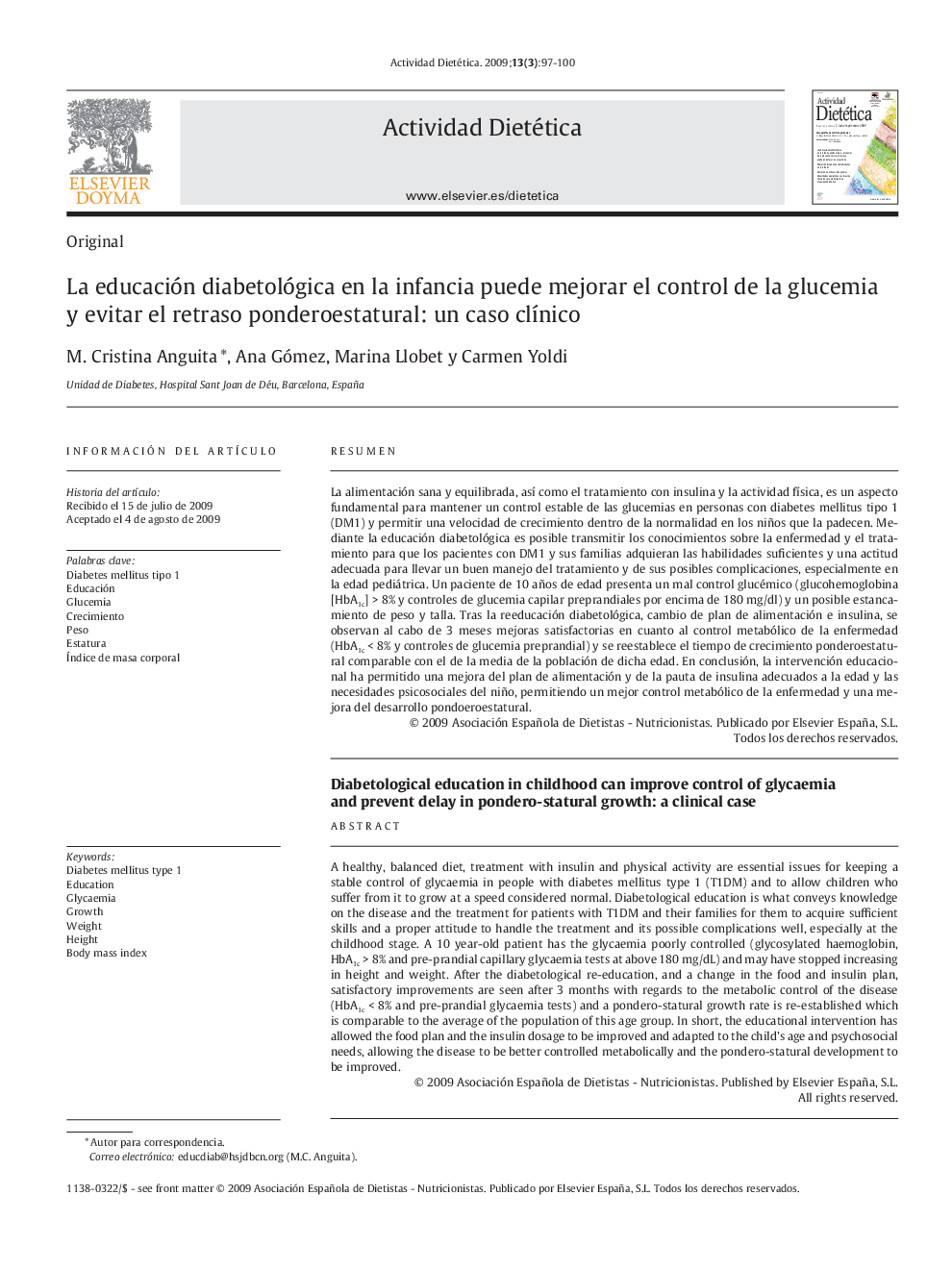| Article ID | Journal | Published Year | Pages | File Type |
|---|---|---|---|---|
| 2686585 | Actividad Dietética | 2009 | 4 Pages |
Abstract
A healthy, balanced diet, treatment with insulin and physical activity are essential issues for keeping a stable control of glycaemia in people with diabetes mellitus type 1 (T1DM) and to allow children who suffer from it to grow at a speed considered normal. Diabetological education is what conveys knowledge on the disease and the treatment for patients with T1DM and their families for them to acquire sufficient skills and a proper attitude to handle the treatment and its possible complications well, especially at the childhood stage. A 10 year-old patient has the glycaemia poorly controlled (glycosylated haemoglobin, HbA1c > 8% and pre-prandial capillary glycaemia tests at above 180Â mg/dL) and may have stopped increasing in height and weight. After the diabetological re-education, and a change in the food and insulin plan, satisfactory improvements are seen after 3 months with regards to the metabolic control of the disease (HbA1c < 8% and pre-prandial glycaemia tests) and a pondero-statural growth rate is re-established which is comparable to the average of the population of this age group. In short, the educational intervention has allowed the food plan and the insulin dosage to be improved and adapted to the child's age and psychosocial needs, allowing the disease to be better controlled metabolically and the pondero-statural development to be improved.
Keywords
Related Topics
Health Sciences
Nursing and Health Professions
Nutrition
Authors
M. Cristina Anguita, Ana Gómez, Marina Llobet, Carmen Yoldi,
